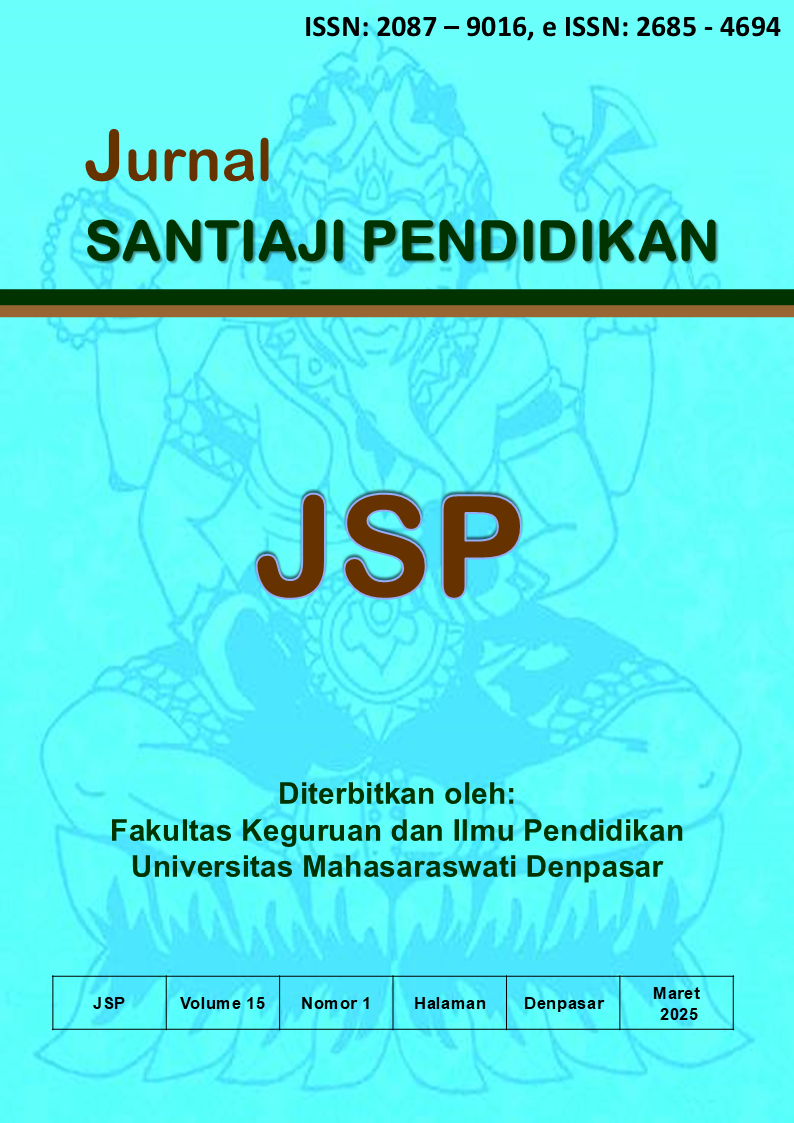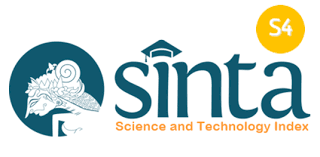IN-SERVICE TEACHERS' VOICES ON AI UTILIZATION IN EDUCATION
DOI:
https://doi.org/10.36733/jsp.v15i1.10733Keywords:
AI, education, in-service teachersAbstract
Developing personalized instructional content is critical for satisfying the different needs of students, particularly in the context of education. This study aimed to identify the perspectives of in-service teachers in utilizing Artificial intelligence (AI) in education. It also focuses on Generation Z characteristics. The study uses a mixed-methods approach. There are 20 in-service teachers who participated in surveys and interviews. Regarding the use of AI in the educational setting, the findings revealed that in-service teachers have several significant opinions. The use of AI in education has both benefits and challenges. The employment of AI is causing in-service teachers to become more aware. AI has the ability to provide educational resources and enhance teaching methods. However, there are still barriers like a lack of technological know-how and issues with equity. Consequently, maximizing AI's potential in classroom practice requires ongoing teacher training programs, the development of ethical standards and best practices, equitable access to AI resources, and long-term studies on the effects of AI on learning outcomes.
Downloads
References
Abulibdeh, A., Zaidan, E., & Abulibdeh, R. (2024). Navigating the confluence of artificial intelligence and education for sustainable development in the era of industry 4.0: Challenges, opportunities, and ethical dimensions. Journal of Cleaner Production, 140527. https://doi.org/10.1016/j.jclepro.2023.140527
Aghaziarati, A., Nejatifar, S., & Abedi, A. (2023). Artificial Intelligence in education: Investigating teacher attitudes. AI and Tech in Behavioral and Social Sciences, 1(1), 35-42. https://doi.org/10.61838/kman.aitech.1.1.6
Akavova, A., Temirkhanova, Z., & Lorsanova, Z. (2023). Adaptive learning and artificial intelligence in the educational space. In E3S Web of Conferences (Vol. 451, p. 06011). EDP Sciences. https://doi.org/10.1051/e3sconf/202345106011
Alam, A. (2021, December). Should robots replace teachers? Mobilisation of AI and learning analytics in education. In 2021 International Conference on Advances in Computing, Communication, and Control (ICAC3) (pp. 1-12). IEEE. https://doi.org/10.1109/ICAC353642.2021.9697300
Almakaty, S. S. (2024). New trends in communication and media education in the digital age: A global analysis and comparison study. https://doi.org/10.20944/preprints202410.1022.v1
Alshorman, S. M. (2024). The readiness to use AI in teaching science: Science teachers' perspective. Journal of Baltic Science Education, 23(3), 432-448. https://doi.org/10.33225/jbse/24.23.432
Belda-Medina, J., & Kokošková, V. (2024). ChatGPT for language learning: assessing teacher candidates’ skills and perceptions using the Technology Acceptance Model (TAM). Innovation in Language Learning and Teaching, 1-16. https://doi.org/10.1080/17501229.2024.2435900
da Silva, A. F. A. (2024). Critical Thinking and Artificial Intelligence in Education (Master's thesis, Universidade NOVA de Lisboa (Portugal)).
Dai, C. P., & Ke, F. (2022). Educational applications of artificial intelligence in simulation-based learning: A systematic mapping review. Computers and Education: Artificial Intelligence, 3, 100087. https://doi.org/10.1016/j.caeai.2022.100087
Dai, W., Lin, J., Jin, H., Li, T., Tsai, Y. S., Gašević, D., & Chen, G. (2023, July). Can large language models provide feedback to students? A case study on ChatGPT. In 2023 IEEE International Conference on Advanced Learning Technologies (ICALT) (pp. 323-325). IEEE. https://doi.org/10.1109/icalt58122.2023.00100
Ding, J., & Su, Y. (2024). A teaching management system for physical education in colleges and universities using the theory of multiple intelligences and SVM. Soft Computing, 28(1), 685-701. https://doi.org/10.1007/s00500-023-09419-8
Ezeoguine, E. P., & Eteng-Uket, S. (2024). Artificial intelligence tools and higher education student’s engagement. Edukasiana: Jurnal Inovasi Pendidikan, 3(3), 300-312. https://doi.org/10.56916/ejip.v3i3.733
Giannakos, M., Azevedo, R., Brusilovsky, P., Cukurova, M., Dimitriadis, Y., Hernandez-Leo, D., Järvelä, S., Mavrikis, M., & Rienties, B. (2024). The promise and challenges of generative AI in education. Behaviour & Information Technology, 1-27. https://doi.org/10.1080/0144929X.2024.2394886
Jain, C., Prasad, N., Jain, C., & Prasad, N. (2018). Understanding factors affecting student outcomes and learning behaviour. Quality of Secondary Education in India: Concepts, Indicators, and Measurement, 163-187. https://doi.org/10.1007/978-981-10-4929-3_11
Lellis-Santos, C., & Halpin, P. A. (2018). Workshop report: “Using Social Media and Smartphone Applications in Practical Lessons to Enhance Student Learning” in Búzios, Brazil (August 6–8, 2017). https://doi.org/10.1152/advan.00011.2018
Lérias, E., Guerra, C., & Ferreira, P. (2024). Literacy in artificial intelligence as a challenge for teaching in higher education: A case study at Portalegre Polytechnic University. Information, 15(4), 205. https://doi.org/10.20944/preprints202403.0754.v1
Marrone, R., Taddeo, V., & Hill, G. (2022). Creativity and artificial intelligence: A student perspective. Journal of Intelligence, 10(3), 65. https://doi.org/10.3390/jintelligence10030065
Mustopa, M., Nasikhin, N., Chamami, R., Nihayah, H., Habibullah, M. R., & Manshur, A. (2024). Challenges in artificial intelligence development in higher education in China, India, and Indonesia: International students’ perspectives. International Journal of Learning, Teaching and Educational Research, 23(2), 354-373. https://doi.org/10.26803/ijlter.23.2.17
Nguyen, P. T., Nguyen, Q. L. H. T. T., Nguyen, L. T., & Huynh, V. D. B. (2024). Investigating the e-learning choice under the learners’ perspective using demand driven learning model: insights from Vietnam. Scientific Reports, 14(1), 27437. https://doi.org/10.1038/s41598-024-78488-y
Nuangchalerm, P., Prachagool, V., Saregar, A., & Yunus, Y. M. (2024). Fostering Pre-Service Teachers’ AI Literacy through School Implications. Journal of Philology and Educational Sciences, 78-87. https://doi.org/10.53898/jpes2024327
Nur, N., Goh, S. J., Patel, J., & Mizrahi, M. (2024). Navigating the ethical landscape of AI integration in educational settings. In INTED2024 Proceedings (pp. 7654-7663). IATED. https://doi.org/10.21125/inted.2024.2040
Pramerta, I. G. P. A. (2024). What do gen z students need to succeed in reading comprehension?. Voices of English Language Education Society, 8(2). https://doi.org/10.29408/veles.v8i2.26908
Rütti-Joy, O., Winder, G., & Biedermann, H. (2024). The age of AI: Navigating the new landscape of quality education. Artificial Intelligence and Education-Shaping the Future of Learning: Shaping the Future of Learning, 177. https://doi.org/10.5772/intechopen.1005030
Saricoban, A., & Kirmizi, O. (2021). Investigating the relation between pre-service EFL teachers' epistemic cognition, instructional preferences and perceived engagement beliefs. Journal of Language and Linguistic Studies, 17(S2), 979-993. https://search.informit.org/doi/10.3316/informit.140952760004601
Sharifuddin, N. S., & Hashim, H. (2024). Benefits and challenges in implementing artificial intelligence in education (AIED) in ESL Classroom: A systematic review (2019-2022). International Journal of Academic Research in Business and Social Sciences, 14(1), 146-164. http://dx.doi.org/10.46886/IJARBSS/v14-i1/9394
Sumakul, D. T. Y., & Hamied, F. A. (2023). Amotivation in AI injected EFL classrooms: Implications for teachers. Indonesian Journal of Applied Linguistics, 13(1). https://doi.org/10.17509/ijal.v13i1.58254
Uygun, D., Aktaş, I., Duygulu, İ., & Köseer, N. (2024). Exploring teachers' artificial intelligence awareness. Advances in Mobile Learning Educational Research, 4(2), 1093-1104. https://doi.org/10.25082/AMLER.2024.02.004
Velander, J., Taiye, M. A., Otero, N., & Milrad, M. (2024). Artificial intelligence in K-12 education: Eliciting and reflecting on Swedish teachers' understanding of AI and its implications for teaching & learning. Education and Information Technologies, 29(4), 4085-4105. https://doi.org/10.1007/s10639-023-11990-4
Walter, Y. (2024). Embracing the future of artificial intelligence in the classroom: The relevance of AI literacy, prompt engineering, and critical thinking in modern education. International Journal of Educational Technology in Higher Education, 21(1), 15. https://doi.org/10.1186/s41239-024-00448-3
Zammit, M., Voulgari, I., Liapis, A., & Yannakakis, G. N. (2022, June). Learn to machine learn via games in the classroom. In Frontiers in Education (Vol. 7, p. 913530). Frontiers Media SA. https://doi.org/10.3389/feduc.2022.913530
Zhang, L. (2024). Benefits and challenges in implementing artificial intelligence from Chinese EFL primary school teachers' attitude and perception. From the editors, 48.
Downloads
Published
Issue
Section
License
Copyright (c) 2025 I Gde Putu Agus Pramerta

This work is licensed under a Creative Commons Attribution 4.0 International License.











